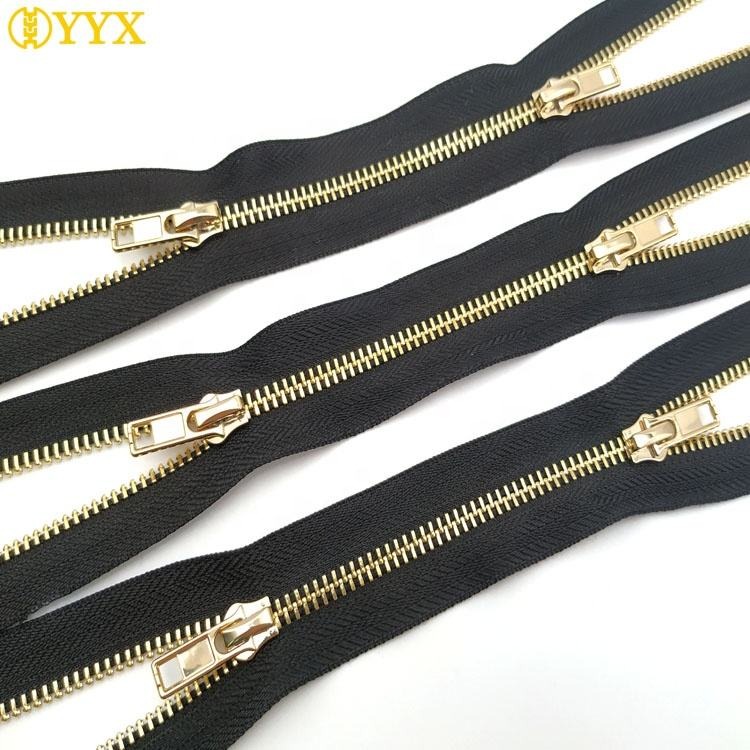Zippers are an essential fastening device used in clothing, bags, and various other products. They come in different materials, including metal and plastic. The debate on which one is better between metal and plastic zippers has been ongoing for years. In this article, we will compare the two types of zippers and provide an objective analysis of their advantages and disadvantages.
Metal Zippers:
Metal zippers have been around for over a century and are known for their durability and strength. They are made from brass, aluminum, or stainless steel, and have metal teeth that interlock to form a secure closure. Metal zippers are resistant to wear and tear and are less likely to break or malfunction, making them ideal for heavy-duty use. They also have a smooth and robust feel, making them a popular choice for high-end fashion products.
One of the significant advantages of metal zippers is their resistance to heat and fire. This makes them an ideal choice for products that require a high level of safety, such as firefighting gear, industrial clothing, and military uniforms. Metal zippers are also highly customizable, with a wide range of colors and finishes available.
However, metal zippers also have some disadvantages. They can be heavy and bulky, making them unsuitable for lightweight clothing and bags. They can also rust over time, especially if exposed to moisture, salt, or other corrosive materials.
Plastic Zippers:
Plastic zippers, also known as coil zippers, are made from a molded plastic coil that interlocks to form a secure closure. They are lightweight, flexible, and easy to handle, making them suitable for a wide range of products. Plastic zippers are also resistant to rust and corrosion, making them ideal for use in humid or wet environments.

One of the significant advantages of plastic zippers is their versatility. They come in a wide range of colors, sizes, and styles, making them suitable for a broad range of products, from clothing to bags to outdoor gear. They are also relatively inexpensive, making them a popular choice for mass-produced items.
However, plastic zippers also have some disadvantages. They are less durable than metal zippers and can break or malfunction more easily. They are also more prone to wear and tear, especially when subjected to heavy use or harsh conditions. Additionally, plastic zippers can become brittle over time, especially when exposed to sunlight or UV radiation.
Metal vs. Plastic Zippers: Which is Better?
The choice between metal and plastic zippers ultimately depends on the specific needs of the product. Here is a summary of their pros and cons:
Metal Zippers:
Pros:
- Durable and strong
- Resistant to wear and tear
- Can withstand high temperatures and fire
- Customizable with a wide range of finishes
Cons:
- Heavy and bulky
- Can rust over time
- More expensive than plastic zippers
Plastic Zippers:
Pros:
- Lightweight and flexible
- Resistant to rust and corrosion
- Versatile and available in a wide range of colors and styles
- Inexpensive
Cons:
- Less durable than metal zippers
- Prone to wear and tear
- Can become brittle over time
Conclusion:
In conclusion, both metal and plastic zippers have their advantages and disadvantages. Metal zippers are durable, strong, and resistant to wear and tear, making them ideal for heavy-duty use and products that require a high level of safety. Plastic zippers are lightweight, versatile, and suitable for a wide range of products, from clothing to bags to outdoor gear. Ultimately, the choice between the two types of zippers will depend on the specific needs of the product, including its weight, usage, and style.


